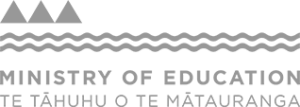CEO Update
Kia ora,
Our first quarter of the 2023 financial year continues the upward trend in scam and fraud reports – an increase in reports of 11.6% above the previous quarter. Over 60% of complaints are consumer-protection-related scams, yet Netsafe and our hotline is not funded to deal with this type of complaint something we continue to raise with government stakeholders.
Our work has grown at the same speed as New Zealanders’ engagement with the internet has grown. This demand has grown as the different types of harms New Zealanders experience online has grown. So too has the complexity of matters as New Zealanders increasingly spend more time online. Most of our incidents are resolved by our incident response team. Approximately 15% of matters are handled by a case manager under the HDCA who works with the parties to resolve the complaint.
This quarter also saw the creation of a new leadership and advisory team to lead growth and innovation at Netsafe. New key appointments include Leanne Ross as our Chief Customer Officer and Michael des Tombe as Chief Legal Officer. Their arrival boosts Netsafe’s user and customer experience, advocacy and legal leadership skills. Read more in our media release.
We launched three outreach initiatives this quarter. Our first diverse Netsafety Week in July created spaces for conversations for our culturally, linguistically, diverse and Māori communities about online safety issues. We launched the Aotearoa New Zealand Code of Practice for online safety and harms. Our #BeYourSelfie campaign (with Bodyright.co’s support) went live during Mental Health Awareness Week. All of our initiatives are encouraging New Zealanders to have healthier relationships with themselves and others online.
We’ve reconnected with our global audience and participated at several international forums including:
- Facebook oversight work
- Internet Corporation of Assigned Names and Numbers meeting
- Internet Governance Forum of Taiwan and the International Symposium in cyber bullying.
We’ve joined the government’s 13-week tech accelerator programme to work on our education micro-learning project to bring the online safety education message to more people. Being on the accelerator program means we will have a new education product in time for the start of school term in 2023.
This quarter we’ve really matured as a desirable place to work. Our first digital employee Kora has arrived to do more of our menial work and respond to questions made through our website 24/7. We’ve upgraded our telephony and embraced cloud-based AI contact centre software which means less administrative tasks for staff and better call experiences for consumers.
Our biggest single effort towards a great work environment has been putting well-being at the centre of everything we do. We’ve joined the global 4-day work week pilot for six months and adopted a well-being pyramid that gives staff wrap-around, free and company-paid for well-being apps and services. All the while, crafting a fun and productive culture.
We’re also moving our Auckland head office next quarter and experimenting with teams and zoom. Employees are given the freedom to work from anywhere in New Zealand. It’s seen our presence grow to Dunedin, Christchurch, Wellington and the Hawkes Bay.
As this year has progressed, we have noticed the demand for commentary on a number of policy and legislative reforms. We submitted on the Civil Justice Wayfinding consultation and the Aotearoa New Zealand Public Media Bill and wrote to our local MP to share our experiences with romance scams.
Netsafe continues to bring expert advice and experience to online safety work-streams while remaining focused on its role of receiving individual/personal complaints of online harm and online safety education. We are working hard to ensure that Netsafe’s role is not forgotten and fully understood, valued and funded as new entities are created to respond to wider internet safety issues.
I continue to share what we are working on through our monthly newsletter and have launched a new blog to improve external communication between reporting cycles. If you have any questions or ideas on how we can work together, please contact me.
Ngā mihi,
Brent Carey
CEO, Netsafe
Report Contents
Previous quarterly reports
Quarterly Results
Between July – September 2022, Netsafe received 6,287 reports overall which is a 4.7% percent decrease compared to the last quarter. Netsafe experienced a 5.4 percent decrease in personal harm reports, a 11.6 percent increase in scam reports.
Top taxonomy descriptions included:
Scams • Phishing • Harassment • Prize promotion/sweepstakes scam • Worthless or non-existent products • Social engineering • Consumer investment fraud • Sensitive information released – reputation • Threaten, intimidate or menace • Tax refund opportunity • False allegation made • Intrusion
TOTAL REPORTS (-4.7%*)
PERSONAL HARM COMPLAINTS (-5.4%*)
SCAM & FRAUD REPORTS (+11.6%*)
*percentage change based on reports made to Netsafe when compared to the last quarter (April-June 2022)
Reports by age group
2%
00-12
11%
13-17
7%
18-21
33%
22-40
31%
41-64
16%
65+
Reports by region
Reports by gender
53%
FEMALE
5%
GENDER DIVERSE
42%
MALE
Personal Harm Reporting
Reported breaches under the Harmful Digital Communications Act*
Between July and September 2022, Netsafe received 1343 personal harm reports. The top personal harm categories under the Harmful Digital Communication Act for the quarter were:
* Cases often involve breaches of more than one communication principle
Harmful Digital Communications Act Reports Spotlight
Netsafe has received an increasing number of reports from young people falling victim to a sextortion scam. This scam involves a scammer contacting a young person over a social media platform, pretending to be another young person, and starting a friendly conversation impersonating someone who wants to build a friendship or relationship of some kind. With the conversation quickly progressing, the scammer often suggests moving over to another platform where they will encourage the young person to share intimate images with them. Once shared, the scammer immediately threatens to share the images with the young persons friends and family, unless a ransom is paid.
Charlie* receives a notification from Snapchat that an account named Casey* has added them as a friend. This is followed by a message saying hi and asking what school they go to. Charlie* and Casey* spend the next hour messaging back and forth, Casey mentions knowing some of Charlies friends from a few years ago.
The chat moves quickly to being flirty with Casey asking Charlie if they want to swap nudes. Charlie agrees and Casey adds Charlie on WhatsApp as they say its “more secure.” Charlie sends an intimate photo. Immediately after, Casey sends a screenshot of Charlies family and friends accounts from their Instagram, threatening to send the image to every account listed, unless $1000 is paid.
Charlie panics, not knowing what to do, begs Casey not to send the image. Casey gives Charlie a five-minute countdown to pay, or the image will be shared to everyone.
Unfortunately, this is a very common scam, and one that many people of all ages are victim to each year. Charlie texts “Netsafe” on 4282 and asks for help. Here’s what Charlie should do:
Do not pay – the scammer’s primary focus is to get paid, they are targeting many people at once, and will focus on the person most likely to pay them.
Do not reply – stop all contact, the scammer is likely to move on to a person that is engaging with them.
Report/ block the scammer on all social media/ messaging platforms. Using the in-app reporting functions is the most effective way of alerting the platform to what’s happening.
Temporarily deactivate or privatise all your accounts, to ensure the scammer can’t access any further information about you, your family, and friends.
Send screenshots/ URLs of the scammers accounts to Netsafe, we can often help with reporting the accounts to the platforms, this can lead to accounts getting disabled.
Speak to a trusted adult about what’s happened, or call a helpline for further support.
(*names are not the names associated with any specific report to Netsafe, the above scenario is an example of the types of incidents reported to Netsafe).
Scam and Fraud Snapshot
This quarter saw a resurgence in reports about scam phone calls. This was largely driven by calls related to financial service providers. Banks and online payment platforms were impersonated by scammers who instructed customers to provide payment information to dispute fictitious transactions. Phone calls remain a preferred method of contact for scammers as they support a more personal connection with the people they target. We have seen this connection and trust abused by scammers who have leveraged this rapport to lead customers into various follow-up scams, such as fake tech support or money recovery scams. The continued targeting of scam victims who have unwittingly built a relationship of trust with scammers reflects an increasing complexity in how these scams are organised and delivered. Often times there are multiple individuals working as a part of a scammer collective who act in various roles to deliver convincing scam scenarios.
This theme of nurturing personal relationships and increasing time investment by scammers continues with another notable trend in scam reports received by Netsafe this quarter, the doubling of incident reports related to webcam blackmail. These scams involve connecting with people on social media and online dating sites, encouraging people to share intimate content and then using the threat of sharing this content to blackmail the customer into making payments to them. This particularly vicious scam type can lead to isolation and a loss of confidence in digital technology.
Scam & fraud snapshot
$3,216,375M
REPORTED LOSSES
579
REPORTS WITH $ LOSSES
$5,555
AVERAGE LOSS
Top scam categories reported
Reported incidents from chatbot (Kora)
Education, Partnerships & Impact
Netsafe continued to provide practical tools, advice and information to help people have better online experiences. We supported schools with in-person or online education sessions across 29 locations, reaching 1,644 leadership, staff, young people and whānau.
During this quarter Netsafe completed five Live Events in Gisborne, New Plymouth, Pakuranga, Rotorua and Rolleston, and attended two conferences in partnership with N4L: PB4L (Positive Behaviour for Learning) in Wellington and the New Zealand Principal’s Federation conference in Christchurch.
We also delivered another mix of online and in-person events during Netsafety Week, to encourage kōrero about opportunities for positive, safer online spaces across our diverse communities. Watch a summary of the highlights.
140 schools supported
1,644 staff, students and whānau reached
43 sessions
5 Netsafe LIVE events
2 conferences
Netsafety Week
3x Networking Breakfasts
10x Webinars
Netsafe Team Spotlight
Michael des Tombe, Netsafe Chief Legal Adviser
Michael joined Netsafe in September having recently returned from the United Kingdom where, for the past 18 years, he worked in a number of legal roles in the public sector. He was most recently Deputy Director at Cabinet Office Europe Legal Group and was a core member of the UK team successfully negotiating the UK’s post-Brexit trade and security relationship with the EU.
Michael is based in Wellington and is enjoying the amazing outdoor environment New Zealand has to offer.
About Netsafe
Netsafe is an independent non-profit organisation with an unrelenting focus on online safety. We keep people safe online by providing free support, advice and education. Visit netsafe.org.nz for useful resources or call 0508 638 723 seven days a week for help with an online incident.
Find out more at www.netsafe.org.nz
Become a Netsafe member
Netsafe is incorporated as a society and a charity. Our members represent a variety of backgrounds and countries, but all have one thing in common – an interest in keeping people safe online. Membership is free and easy to apply for.
Find out more about being a Netsafe member, or apply to join today by completing our online form.
Report Data
The data in this report represents the data available at the end of the quarter. Information related to the reports made to Netsafe reflect high-level trends and does not include easily identifiable information about specific reports/incidents.
If you have any queries about the information in this report, please email [email protected]





